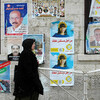
This week, Israeli forces killed three Palestinians, including a mentally-handicapped child. At least 13 Palestinian civilians, including a child were wounded. Israeli forces conducted 27 incursions into Palestinian communities in the West Bank. Israeli forces raided Palestinian homes and 53 civilians, including six children were arrested. Israeli forces transformed six Palestinian homes into military outpost. Israel continues to impose a total siege on the occupied Palestinian territories. Israeli forces have imposed severe restrictions on movement. Despite international criticism, Israel continues to construct the Apartheid Wall. Israeli forces razed land in Hebron. Israeli settlers continue attacks on Palestinian civilians and property. Israeli forces demolished two Palestinian homes in Bethlehem. Read more about Weekly report on human rights violations

The Palestinian Centre for Human Rights expresses grave concern over the continued closure of Al-Muntar (Karni) checkpoint, east of Gaza City. The closure has halted the importation and exportation of basic goods, medicines, and other commodities. The closed checkpoint is the only commercial crossing connecting the Gaza Strip with the West Bank, Israel and the outside world. PCHR is concerned over the potentially devastating effects of this continued closure, representing the continued strangulation of the Palestinian economy, particularly in the Gaza Strip. Read more about Gaza Strip markets suffer from a severe shortage in dairy products, basic goods, and medicines
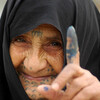
On Wednesday, 25 January 2006, Palestinians cast their ballots to elect representatives in the Palestinian Legislative Council. These were the second parliamentary elections in the Occupied Palestinian Territory (OPT) since the establishment of the Palestinian National Authority (PNA) in 1994. PCHR registered minor violations by candidate and party supporters. The most notable violation was the continuation of campaigning at the entrances and inside polling centers. In addition, private media outlets continued to broadcast campaign messages for candidates and contesting parties, especially for the largest two parties. Read more about Preliminary Assessment of Polling and Vote Count Processes from Monitors
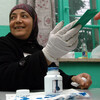
Preliminary results of the monitoring process indicate that the elections were held in an organized and quiet manner throughout the Gaza Strip, reflecting high levels of organization and professionalism by the Central Elections Committee (CEC). Voting was transparent, as it was conducted in the presence of candidate and party representatives, local and international monitors, and local and international media. Throughout the day, the CEC cooperated completely with monitoring bodies, and dealt seriously with all comments presented by monitors. Closure minutes were prepared in the presence of candidate and party representatives and monitors. Then, the vote count started. Read more about Polls close in Palestinian elections
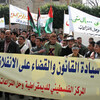
In the pre-dawn hours of Tuesday, 24 January 2006, unidentified gunmen opened fire at Ahmad Yousef Abdel Jabbar Hassuna, 36, of Nablus, and killed him. PCHR’s preliminary investigation indicates that, on Monday evening (23 January 2006), a group of gunmen carrying automatic rifles came to the victim’s house in Rafedeya neighborhood. They asked him to remove from his house’s wall a picture of PLC candidate Ghassan El-Shak’a; but he refused to comply with their demand. The gunmen left. At approximately 02:00 on Tuesday, ten unidentified gunmen came to the house and attempted to remove the picture. Their voices woke up Hassouna, who came out of his house carrying a pistol. The gunmen immediately opened fire at him, hitting him with a bullet in the head. Read more about Gunmen kill Fatah activist
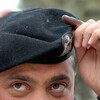
On Monday evening, 23 January 2006, early voting of Palestinian security forces for the Palestinian legislative commenced have been completed. Voting of security forces started on Saturday morning, 21 January 2006, and has continued for 3 days, in accordance to amendments to article 73 of the Elections Law No. 9 of 2005, which allow security forces to vote on the three days that precede the official date of election. According to the Central Election Commission, by 15:00, 53227 security personnel (90%) had voted. The number of security personnel who have the right to vote in polling centers throughout the West Bank and the Gaza Strip is 58705, including 36091 in the Gaza Strip. Read more about Palestinian Elections: Third day voting of the security forces
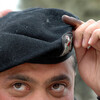
On Sunday, 22 January 2006, early voting of Palestinian security forces for the Palestinian Legislative Council continued for the second consecutive day. Voting of security forces started on Saturday morning, 21 January 2006, and will end on Monday evening, 23 January 2006, in accordance to the amendments to article 73 of the Elections Law No. 9 of 2005, which allow security forces to vote on three days preceding the official date of election. According to the Central Election Commission (CEC), 49.6% of security personnel in the West Bank and the Gaza Strip voted on the first day. By 15:00 on the second day of voting, 75.9% of security personnel had voted. Read more about Palestinian Elections: Second day voting of the security forces
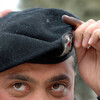
On Saturday morning, 21 January 2006, early voting of Palestinian security forces for the Palestinian Legislative Council commenced in accordance to amendments to article 73 of the Elections Law No. 9 of 2005, which allows security forces to vote on three days preceding the official date of election. These days were decided on as 21, 22 and 23 January 2006. According to the Central Election Commission (CEC), the number of security personnel who have the right to vote in polling centers throughout the West Bank and the Gaza Strip is 58,705, including 36,091 in the Gaza Strip. Elections are held in polling centers specified and fully supervised by the CEC. Read more about Palestinian Elections: First day voting of the security forces
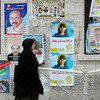
Israeli forces have imposed additional restrictions on the movement of Palestinian civilians in the West Bank. Since the beginning of this year, Israel has separated the north of the West Bank from other Palestinian communities. These measures have coincided with the initiation of the campaigns for Palestinian parliamentary elections. Since the beginning of this year, Israeli forces have operated Qalandya checkpoint between Ramallah and Jerusalem, and have transformed Za’tra checkpoint, south of Nablus, into a crossing. Read more about Severe Restrictions on Movement in the West Bank Impact the Election Campaigns
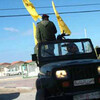
Election observers noticed on the first day of voting by Palestinian security forces, Saturday, 21 January 2006, that some security vehicles were used by security services during campaigning activities for Fatah. Electoral posters and banners for Fatah were stuck on the bodies of security vehicles, while some security officials were also seen raising Fatah flags. These activities violate Election Law No. 9 of 2005, whose article 59-3 prescribes that “the Executive Authority and all the bodies affiliated thereto shall maintain an impartial position during all of the phases of the election process and shall not perform any electoral or campaign activity that might be construed as favoring one candidate or electoral list over another.” Read more about Palestinian Elections: PA vehicles used in election campaign









